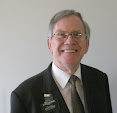(for the Oct 14 class at Riverbend, if I have time left over after demonstrating The Godfrey Memorial Library. Also see the Genealogy In Time tutorial How to Use Google Advanced Search for Genealogy http://tinyurl.com/y9ycku9 to overcome Google's limit of 2 hits per page.) Power Googling for Genealogy When doing Google searches, unless you have limitless time and patience, you normally want fewer than 200 hits. Personally, I consider 20 to be a good number. If you have found 398,798 pages that refer to your search, you are using the wrong search terms or using them wrongly. These suggestions should help. Square brackets [ ] are used to denote queries, so [ to be or not to be ] is an example of a query; [ to be ] or [ not to be ] are two examples of queries. Exact phrase search ("") By putting double quotes around a set of words, you are telling Google to consider the exact words in that exact order without any change. ["Jane Watson" "Riding Mountain"] will look for pages that contain both of these terms. Without the quotes, all pages that contain those four words in any order and any context will be listed. e.g. Jane Jones and Sally Watson were riding up the mountain. But use some caution, a search for [ "Gertrude Taylor" ] (with quotes) will miss references to Gertrude E. Taylor or Gertrude Emily Taylor. This search works within many websites (site:) Google allows you to specify that your search results must come from a given website. For example, the query ["Richard Welsh" site:rootsweb.ancestry.com] will list pages about any Richard Welsh but only from rootsweb.ancestry.com. Terms you want to exclude ( -) Attaching a space and minus sign immediately before a word indicates that you do not want pages that contain this word. For example [Anthony Blair -"prime minister"]. Fill in the blanks ( *) If you include * within a query, it tells Google to treat the star as a placeholder for any unknown term(s) and then find the best matches. For example, the search ["Alexander * Bell"] will include results about Alexander G. Bell and Alexander Graham Bell as well as Alexander Harper and Sharon Bell. The * operator works only on whole words, not parts of words. Search exactly as is ( +) Google employs synonyms automatically. By attaching a space and + immediately before a word (but no space after the +), you are telling Google to match that word precisely. The OR operator is needed if you want to specifically allow any one of several terms. Separate the terms with OR (in ALL CAPS). For example, ["Pigeon Lake" OR Falun OR Mulhurst] will give you results about any of these adjacent places, whereas ["Pigeon Lake" Falun Mulhurst] will only show pages that include ALL of these on the same page. This is especially handy for surnames with multiple spellings. The tilde (~) operator takes the word immediately following it and searches both for that specific word and for the word’s synonyms. It also searches for the term with alternative endings. The tilde operator works best when applied to general terms and terms with many synonyms. [Eley ~Missouri] Need to do a quick calculation of a birth year? Try the query [1871 - 46] Google’s answer = 1825 To include all numbers in a range in your query, separate the lower and upper limits with two periods without spaces ["Edith Linnen" 1850..1870 Edwardsburgh] In genealogy queries, other useful words include born, lived, married, died. [Annabel McLeod born 1735] Google Alerts are emails sent to you when Google finds new results -- such as web pages, newspaper articles, or blogs -- that match your search term. You can use Google Alerts to monitor anything on the Web. For example, some genealogists use Google Alerts to receive notification of new online content about families they are researching. You can create Google Alerts at http://www.google.com/alerts (You need to be highly specific in your search terms to avoid spamming yourself.) See http://www.google.com/support/websearch/bin/answer.py?hl=en&answer=136861 Happy Googling!
Bill's Genealogy Blog
Bill Buchanan is a long-time genealogy enthusiast, living in Spruce Grove, Alberta, Canada. This blog will describe my experiences as I research my family history and help others.
About Me

- Name: Bill Buchanan
- Location: Spruce Grove, Alberta, Canada
I am a retired online school teacher. I love family history. From 2007-2020, I spent much of my time providing part-time support for the world's largest free family history site https://familysearch.org This is very rewarding. I have helped others with the Family Tree and related FamilySearch products.
In 2010-2018 I served in the Edmonton_Alberta_Riverbend_Family_History_Centre..I have a FHC blog at Bill's Family History Center Blog Since 2020 I have been a family history consultant for Edmonton Alberta North Stake.
For information on the Latter-day Saints and family history click https://www.comeuntochrist.org/


0 Comments:
Post a Comment
<< Home